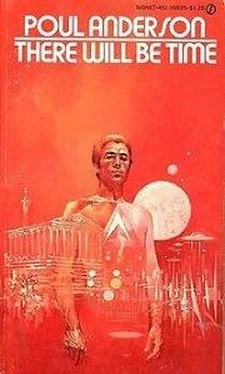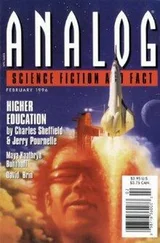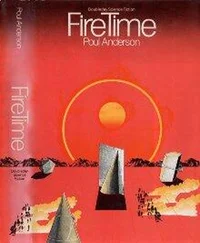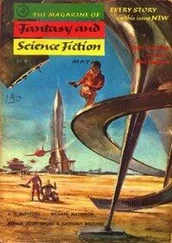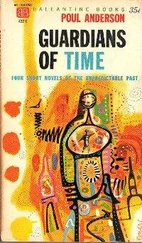Poul Anderson - There Will Be Time
Здесь есть возможность читать онлайн «Poul Anderson - There Will Be Time» весь текст электронной книги совершенно бесплатно (целиком полную версию без сокращений). В некоторых случаях можно слушать аудио, скачать через торрент в формате fb2 и присутствует краткое содержание. Год выпуска: 1972, Издательство: Doubleday, Жанр: Фантастика и фэнтези, на английском языке. Описание произведения, (предисловие) а так же отзывы посетителей доступны на портале библиотеки ЛибКат.
- Название:There Will Be Time
- Автор:
- Издательство:Doubleday
- Жанр:
- Год:1972
- ISBN:нет данных
- Рейтинг книги:5 / 5. Голосов: 1
-
Избранное:Добавить в избранное
- Отзывы:
-
Ваша оценка:
- 100
- 1
- 2
- 3
- 4
- 5
There Will Be Time: краткое содержание, описание и аннотация
Предлагаем к чтению аннотацию, описание, краткое содержание или предисловие (зависит от того, что написал сам автор книги «There Will Be Time»). Если вы не нашли необходимую информацию о книге — напишите в комментариях, мы постараемся отыскать её.
Nominated for Hugo Award for Best Novel in 1973.
There Will Be Time — читать онлайн бесплатно полную книгу (весь текст) целиком
Ниже представлен текст книги, разбитый по страницам. Система сохранения места последней прочитанной страницы, позволяет с удобством читать онлайн бесплатно книгу «There Will Be Time», без необходимости каждый раз заново искать на чём Вы остановились. Поставьте закладку, и сможете в любой момент перейти на страницу, на которой закончили чтение.
Интервал:
Закладка:
Trudging down a dirt road, where dust whoofed around her boots while a many-armed automaton whispered through the sky overhead, Leonce sighed: “You’re right. I do not understand these people.”
“That could take a lifetime,” Havig agreed. “Something new has entered history. It needn’t be bad, but it’s surely new.”
After a space he added: “Has happened before. Could your paleolithic hunter really understand your neolithic farmer? How much alike were a man who lived under the divine right of kings and a man who lived under the welfare state? I don’t always follow your mind, Leonce.”
“Nor I yours.” She caught his hand. “Let’s keep tryin’.”
“It seems—” Havig said, “I repeat, it seems — these Star Masters occupy the ultra-mechanized, energy-flashing bases and the enormous flying craft and everything else we’ve glimpsed which contrasts so sharply with the rest of Earth. They come irregularly. Otherwise their outposts lie empty; does sound like time travelers, hey?”
“But they’re kind o’, well, good. Aren’t they?”
“Therefore they can’t be Eyrie? Why not? In origin, anyhow. The grandson of a conquering pirate may be an enlightened king.” Havig marshaled his thoughts. “True, the Star Masters act differently from what one would expect. As near as I can make out — remember, I don’t follow this modern language any more closely than you do, and besides, there are a million taken-for-granted concepts behind it — as near as I can make out, they come to trade: ideas and knowledge more than material goods. Their influence on Earth is subtle but pervasive. My trips beyond this year suggest their influence will grow, till a new civilization — or post-civilization — has arisen which I cannot fathom.”
“Don’t the locals describe ’em as bein’ sometimes human an’ sometimes not?”
“I have that impression too. Maybe we’ve garbled a figure of speech.”
“You’ll make it out,” she said.
He glanced at her. The glance lingered. Sunlight lay on her hair and the tiny drops of sweat across her face. He caught the friendly odor of her flesh. The pilgrim’s robe molded itself to long limbs. Timeless above a cornfield, a red-winged blackbird whistled.
“We’ll see if we can,” he said.
She smiled.
Clustered spires and subtly curved domes were deserted when they arrived. An invisible barrier held them off. They moved uptime. When they glimpsed a ship among the shadows, they halted.
At that point, the vessel had made groundfall. The crew were coming down an immaterial ramp. Havig saw men and women in close-fitting garments which sparkled as if with constellations. And he saw shapes which Earth could never have brought forth, not in the age of the dinosaurs nor in the last age when a swollen red sun would burn her barren.
A shellbacked thing which bore claws and nothing identifiable as a head conversed with a man in notes of music. The man was laughing.
Leonce screamed. Havig barely grabbed her before she was gone, fleeing downtime.
“But don’t you see?” he told her, over and over. “Don’t you realize the marvel of it?”
And at last he got her to seek night. They stood on a high ridge. Uncountable stars gleamed from horizon to zenith to horizon. Often a meteor flashed. The air was cold, their breath smoked wan, she huddled in his embrace. Quietness enclosed them: “the eternal silence of yonder infinite spaces.”
“Look up,” he said. “Each of those lights is a sun. Did you think ours is the single living planet in the universe?”
She shuddered. “What we saw—”
“What we saw was different. Magnificently different.” He searched for words. His whole youth had borne a vision which hers had known only as a legend. The fact that it was not forever lost sang in his blood. “Where else can newness, adventure, rebirth of spirit, where else can they come from except difference? The age beyond the Maurai is not turned inward on itself. No, it’s begun to turn further outward than ever men did before!”
“Tell me,” she begged. “Help me.”
He found himself kissing her. And they sought a place of their own and were one.
But there are no happy endings. There are no endings of any kind. At most, we are given happy moments.
The morning came when Havig awakened beside Leonce. She slept, warm and silky and musky, an arm thrown across his breast. This time his body did not desert her. His thinking did.
“Doc,” he was to tell me, his voice harsh with desperation, “I could not stay where we were — in a kind of Renaissance Eden — I couldn’t stay there, or anywhere else, and let destiny happen.”
“I believe the future has taken a hopeful direction. But how can I be sure? Yes, yes, the name is Jack, not Jesus; my responsibility must end somewhere; but exactly where?”
“And even if that was a good eon to be alive in, by what route did men arrive there? Maybe you remember, I once gave you my opinion, Napoleon ought to have succeeded in bringing Europe together. This does not mean Hitler ought to have. The chimney stacks of Belsen say different. What about the Eyrie?”
He roused Leonce. She girded herself to fare beside her man.
They might have visited Carelo Keajimu. But he was, in a way, too innocent. Though he lived in a century of disintegration, the Maurai rule had always been mild, had never provoked our organized unpity. Furthermore, he was too prominent, his lifetime too likely to be watched.
It was insignificant me whom Jack Havig and Leonce of Wahorn sought out.
14
APRIL 12, 1970. Where I dwelt that was a day of new-springing greenness wet from the night’s rain, clouds scudding white before a wind which ruffled the puddles in my driveway, earth cool and thick in my fingers as I knelt and planted bulbs of iris.
Gravel scrunched beneath wheels. A car pulled in, to stop beneath a great old chestnut tree which dominated the lawn. I didn’t recognize the vehicle and swore a bit while I rose; it’s never pleasant getting rid of salesmen. Then they stepped out, and I knew him and guessed who she must be.
“Doc!” Havig ran to hug me. “God, I’m glad to see you!”
I was not vastly surprised. In the months since last he was here, I had been expecting him back if he lived. But at this minute I realized how much I’d fretted about him.
“How’s your wife?” I asked.
The joy died out of his face. “She didn’t live. I’ll tell you about it … later.”
“Oh, Jack, I’m sorry—”
“Well, for me it happened a year and a half ago.” When he turned to the rangy redhead approaching us, he could again smile. “Doc, Leonce, you’ve both heard plenty about each other. Now meet.”
Like him, she was careless of my muddy handclasp. I found it at first an unsettling encounter. Never before had I seen someone from out of time; Havig didn’t quite count. And, while he hadn’t told me much concerning her, enough of the otherness had come through in his narrative. She did not think or act or exist remotely like any woman, any human creature, born into my epoch. Did she?
Yet the huntress, tribal councilor, she-shaman, casual lover and unrepentant killer of — how many? — men, wore an ordinary dress and, yes, nylon stockings and high-heeled shoes, carried a purse, smiled with a deftly lipsticked mouth, and said in English not too different from my own: “How do you do, Dr. Anderson? I have looked forward to this pleasure.”
“Come on inside,” I said weakly. “Let’s get washed and, and I’ll make a pot of tea.”
Leonce tried hard to stay demure, and failed. While Havig talked she kept leaving her chair, prowling to the windows and peering out at my quiet residential street. “Calm down,” he told her at length. “We checked uptime, remember? No Eyrie agents.”
Читать дальшеИнтервал:
Закладка:
Похожие книги на «There Will Be Time»
Представляем Вашему вниманию похожие книги на «There Will Be Time» списком для выбора. Мы отобрали схожую по названию и смыслу литературу в надежде предоставить читателям больше вариантов отыскать новые, интересные, ещё непрочитанные произведения.
Обсуждение, отзывы о книге «There Will Be Time» и просто собственные мнения читателей. Оставьте ваши комментарии, напишите, что Вы думаете о произведении, его смысле или главных героях. Укажите что конкретно понравилось, а что нет, и почему Вы так считаете.
